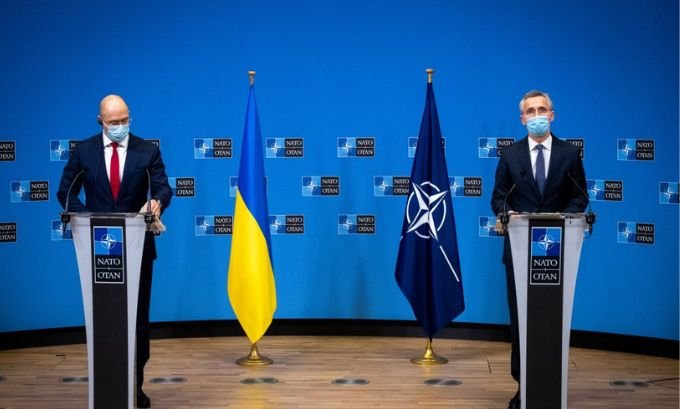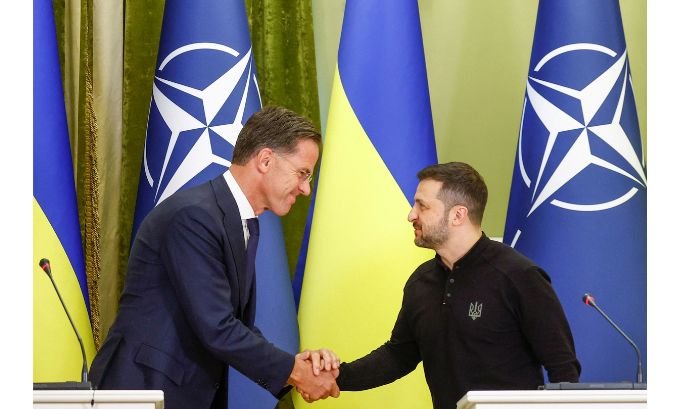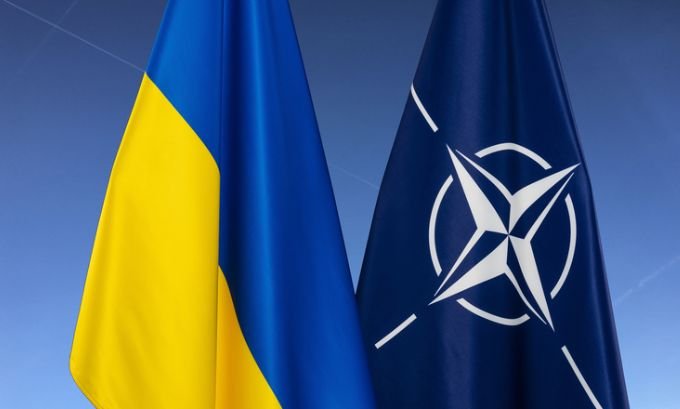Russia’s invasion of Ukraine on February 24, 2022, sent shockwaves across the globe and reignited debates about European security that many thought had been settled with the Cold War’s end. President Vladimir Putin offered a clear narrative to justify the attack: NATO’s relentless eastward expansion had left Russia no choice but to launch a “special military operation” to protect its security interests.
This explanation has dominated headlines and shaped public discourse, but it raises a critical question: Was NATO expansion truly the driving force behind the invasion, or does this narrative obscure deeper, more complex motivations? Understanding the real causes of this conflict is essential for comprehending not just what happened, but what might come next.
The stakes of getting this analysis right extend far beyond academic debate. How we interpret Russia’s motivations will influence everything from future diplomatic efforts to military spending decisions across Europe and beyond.
Table of Contents
The Historical Foundation of Russian Grievances
Russia’s complaints about NATO didn’t emerge overnight. They stem from the dramatic geopolitical shifts that followed the Soviet Union’s collapse in 1991. NATO, originally created in 1949 to counter Soviet influence, found itself without a clear adversary for the first time in its history.
Rather than dissolving, the alliance began expanding eastward. The first wave came in 1999 with Poland, Hungary, and the Czech Republic joining the organization. The Baltic states—Estonia, Latvia, and Lithuania—followed in 2004, bringing NATO forces directly to Russia’s border for the first time.
Each expansion fueled Russian resentment. Moscow viewed these moves as opportunistic power grabs that took advantage of Russia’s post-Soviet weakness. From the Kremlin’s perspective, the West was systematically encircling Russia with a military alliance originally designed to contain it.
Ukraine’s growing ties with Western institutions became the ultimate red line. The country’s 2008 declaration of intent to pursue NATO membership, combined with its increasing cooperation with Western military forces, was seen in Moscow as an existential threat.

Russia’s Security Argument Examined
The Kremlin’s case against NATO expansion rests on several pillars that deserve serious consideration. Russian officials have consistently argued that Western leaders violated informal agreements made during German reunification talks in the 1990s. While these discussions did include references to limiting NATO’s reach, Western nations maintain that no binding promises were ever formalized in treaties.
More substantively, Russia points to the military implications of potential Ukrainian NATO membership. Such a scenario would place advanced Western weaponry and troops along a 1,200-mile shared border, dramatically reducing Russia’s strategic depth—the geographical buffer that has historically protected the Russian heartland from invasion.
Putin framed the 2022 invasion as a defensive response to this perceived encirclement. In his view, waiting for Ukraine to join NATO would have been strategic suicide, leaving Russia vulnerable to Western military pressure at its most sensitive border.
The Western Response to Russian Concerns
Ukraine and its Western allies reject Moscow’s framing entirely. They emphasize that in February 2022, Ukraine was neither a NATO member nor close to becoming one. While Ukrainian leaders had expressed aspirations for membership since 2008, the path remained uncertain and politically fraught within the alliance itself.
Several key NATO members, including Germany and France, had been reluctant to offer Ukraine a clear membership timeline precisely because they feared provoking Russian aggression. The idea that Ukraine posed an imminent NATO threat to Russia simply doesn’t align with the political realities of 2022.
Furthermore, Western officials argue that NATO’s expansion reflected the sovereign choices of Eastern European nations seeking security guarantees after decades of Soviet domination. These countries joined NATO not as pawns in an American strategy to encircle Russia, but as independent states exercising their right to choose their own security arrangements.

Unpacking Russia’s Deeper Motivations
While NATO concerns played a role in Russian decision-making, focusing solely on alliance expansion obscures more fundamental drivers of the conflict. Putin’s own statements and actions suggest the invasion was motivated by a complex web of imperial, ideological, and domestic political factors.
Imperial Restoration
Putin has repeatedly questioned Ukraine’s legitimacy as an independent state. In a lengthy 2021 essay, he argued that Russians and Ukrainians constitute “one people” artificially divided by historical circumstances. This worldview suggests the invasion aimed not just to prevent NATO expansion, but to restore what Putin sees as Russia’s natural sphere of influence.
Ideological Competition
A successful, democratic Ukraine aligned with Western institutions poses a direct challenge to Putin’s authoritarian model. Ukrainian prosperity and freedom could inspire similar democratic movements within Russia itself, threatening the foundations of his rule. Crushing Ukrainian independence serves to eliminate this ideological alternative.
Economic and Strategic Control
Russia’s 2014 annexation of Crimea created new strategic vulnerabilities that required resolution. Securing land access to the peninsula and controlling Ukraine’s energy resources became pressing priorities. The invasion can be viewed as an attempt to consolidate these gains and establish permanent Russian dominance over Ukraine’s strategic assets.
Domestic Political Benefits
Military action abroad has historically boosted Putin’s domestic approval ratings by rallying Russians around nationalist themes. The invasion provided an opportunity to distract from economic problems at home while reinforcing Putin’s image as a strong leader defending Russian interests against foreign threats.
The Unintended Consequences of Russian Strategy
Russia’s decision to frame the invasion as a response to NATO expansion has backfired dramatically. Rather than dividing Western opinion or weakening the alliance, the attack has reinvigorated NATO and expanded its membership.
Finland and Sweden, both historically neutral countries, moved quickly to join NATO in direct response to Russian aggression. This development doubled the length of NATO’s border with Russia, creating precisely the military encirclement that Moscow claimed to oppose.
The invasion has also prompted massive increases in defense spending across Europe and strengthened military cooperation between NATO members. These outcomes suggest that NATO expansion was more pretext than genuine cause—if Russia truly feared alliance encirclement, its actions have guaranteed a much worse strategic outcome.
A War About Power, Not Security
The evidence strongly suggests that while NATO expansion provided a convenient justification for the invasion, it was not the primary driving force behind Russian decision-making. The attack on Ukraine appears to have been motivated by broader imperial ambitions, domestic political calculations, and a fundamental rejection of Ukrainian sovereignty.
This distinction matters enormously for how the international community responds to the conflict. Treating the invasion as a legitimate response to security concerns risks legitimizing territorial conquest and undermining the principle that sovereign nations have the right to choose their own alliances.
Understanding Russia’s true motivations also helps explain why diplomatic solutions based solely on NATO expansion issues have failed to gain traction. The conflict’s roots run much deeper than alliance politics, touching on fundamental questions about sovereignty, democracy, and the post-Cold War international order.
Moving forward, policymakers must grapple with these deeper realities while working to end the violence and prevent future conflicts. The stakes remain high—not just for Ukraine, but for the broader principles that have underpinned European security for decades.
Frequently Asked Questions
Was NATO expansion the main cause of Russia’s invasion of Ukraine?
No. While Russia used NATO expansion as a primary justification, most evidence suggests it was a pretext rather than the root cause. Ukraine was not a NATO member and was not on a clear path to membership when the invasion began. The deeper motivations appear to be related to imperial ambitions, domestic politics, and ideological competition.
Did NATO promise not to expand eastward after the Cold War?
This remains a disputed historical question. Some Russian officials claim they received verbal assurances about NATO expansion limits during 1990s negotiations, but Western leaders deny making binding promises. No formal treaty exists that prohibited NATO expansion, and the alliance maintains that any discussions were preliminary and non-binding.
Could NATO have prevented the war by addressing Russian security concerns?
While some diplomatic compromise might have delayed conflict, Russia’s broader goals went beyond NATO expansion. Putin’s fundamental rejection of Ukrainian sovereignty and desire to restore Russian imperial control suggest that accommodation on alliance issues alone would not have prevented aggression.
How has the invasion affected NATO’s relationship with Russia?
The invasion has dramatically worsened NATO-Russia relations and strengthened the alliance itself. Finland and Sweden joined NATO in direct response to Russian aggression, while existing members have increased defense spending and military cooperation. Rather than weakening NATO, the invasion has reinvigorated it.
What were Russia’s real strategic objectives in invading Ukraine?
Evidence suggests Russia aimed to prevent Ukraine’s Western integration, restore imperial control over Ukrainian territory, secure the 2014 Crimea annexation, eliminate Ukraine as a democratic alternative to Russian authoritarianism, and boost Putin’s domestic political standing through nationalist mobilization.
Why does Putin question Ukraine’s legitimacy as a state?
Putin has repeatedly expressed the view that Ukrainians and Russians constitute “one people” historically divided by external forces. This imperial worldview treats Ukrainian independence as an artificial construct that threatens Russian cultural and political unity, justifying efforts to restore Moscow’s control.

